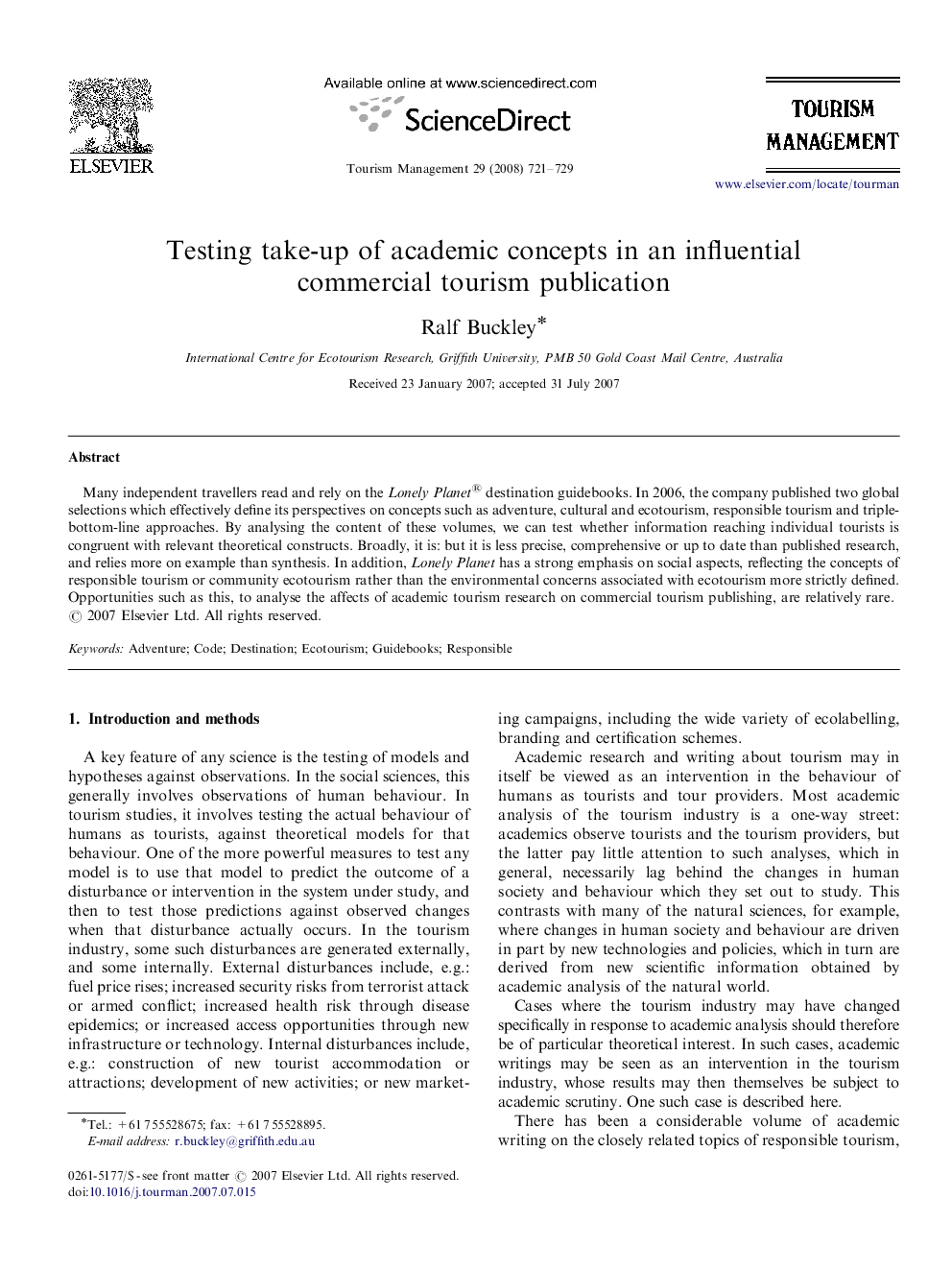| کد مقاله | کد نشریه | سال انتشار | مقاله انگلیسی | نسخه تمام متن |
|---|---|---|---|---|
| 1013025 | 939166 | 2008 | 9 صفحه PDF | دانلود رایگان |

Many independent travellers read and rely on the Lonely Planet® destination guidebooks. In 2006, the company published two global selections which effectively define its perspectives on concepts such as adventure, cultural and ecotourism, responsible tourism and triple-bottom-line approaches. By analysing the content of these volumes, we can test whether information reaching individual tourists is congruent with relevant theoretical constructs. Broadly, it is: but it is less precise, comprehensive or up to date than published research, and relies more on example than synthesis. In addition, Lonely Planet has a strong emphasis on social aspects, reflecting the concepts of responsible tourism or community ecotourism rather than the environmental concerns associated with ecotourism more strictly defined. Opportunities such as this, to analyse the affects of academic tourism research on commercial tourism publishing, are relatively rare.
Journal: Tourism Management - Volume 29, Issue 4, August 2008, Pages 721–729